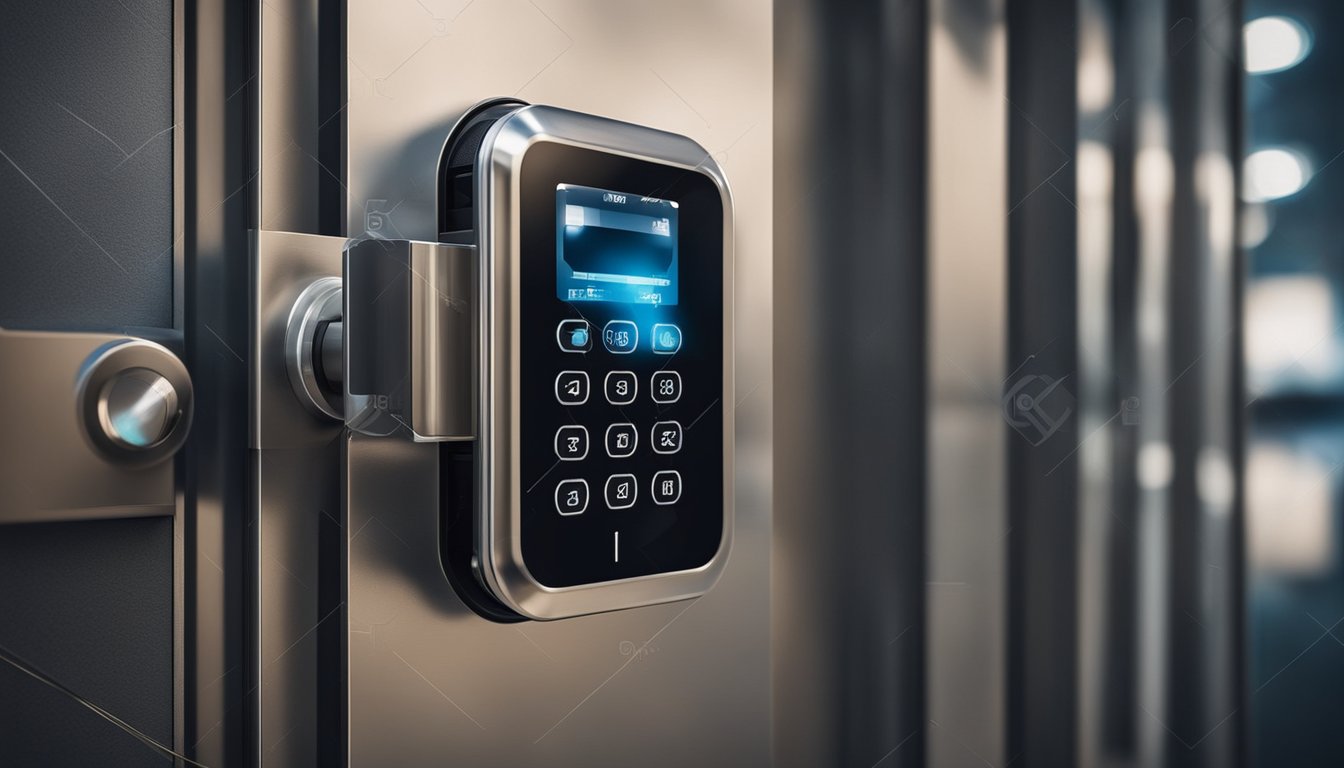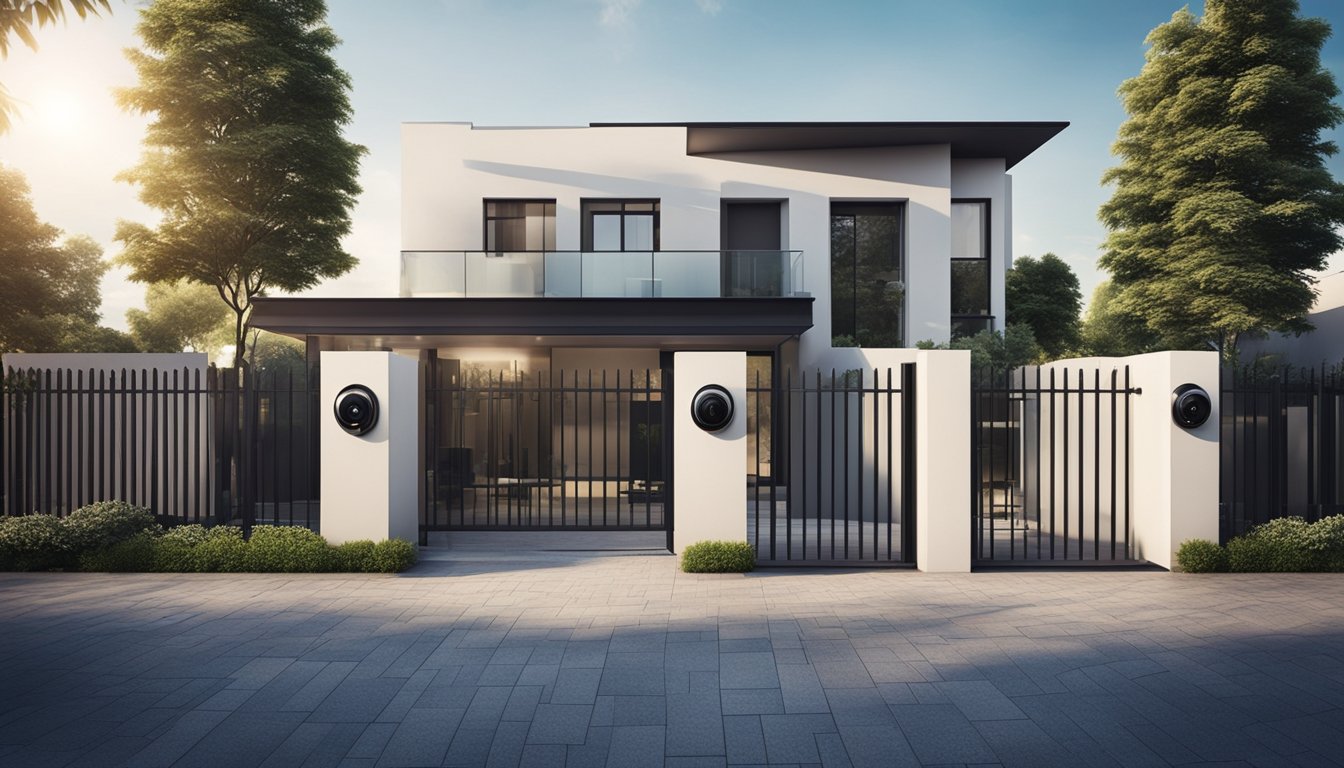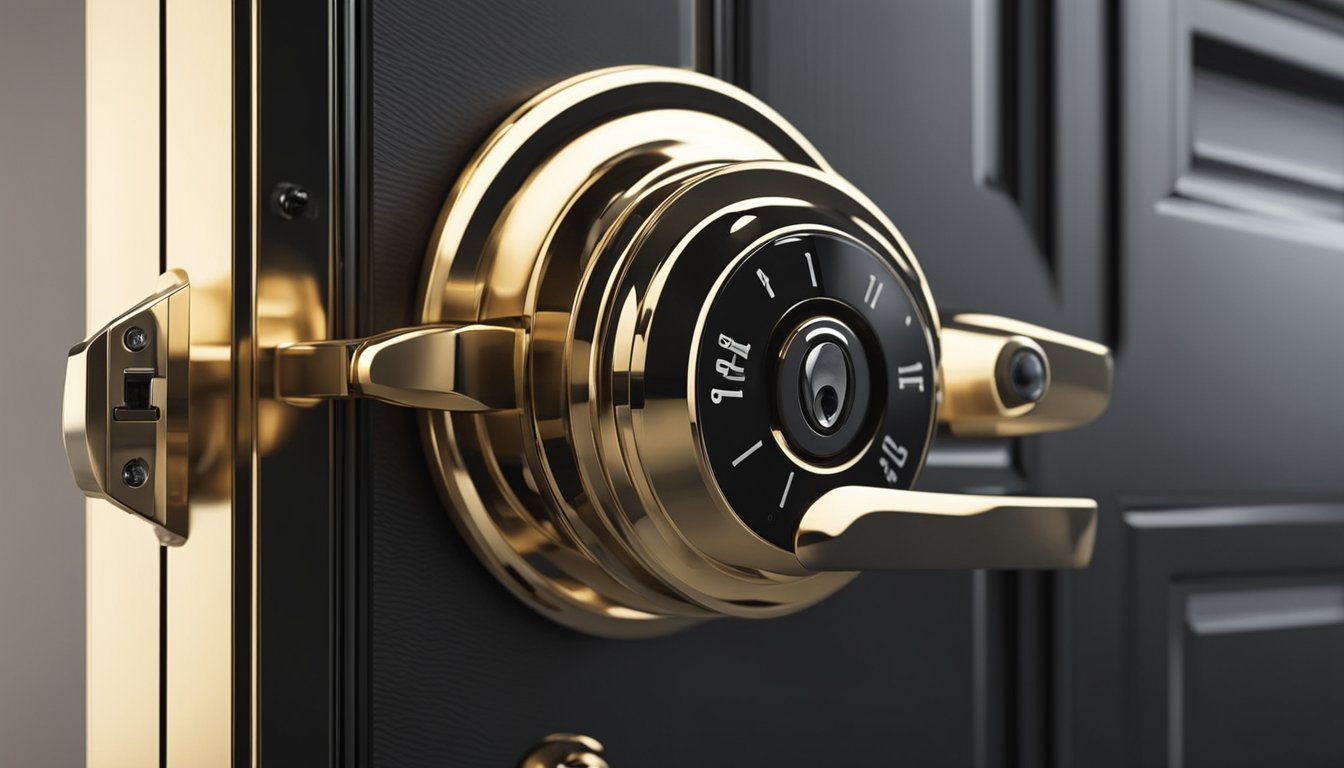Late updated: 04 Aug 2024 13:08
Written by: Elena Prescott
Advanced Lock Mechanisms To Boost Your Home Security: Upgrade Your Protection Today
When it comes to securing our homes, traditional locks may no longer offer the level of protection we need. Advanced lock mechanisms provide an enhanced layer of security that utilises cutting-edge technology and robust materials. From smart locks with biometric features to heavy-duty deadbolts, these locks are designed to withstand various tampering methods and offer peace of mind.

Electronic locks, for example, integrate features like keypads, fingerprint scans, and even smartphone connectivity. These modern systems not only improve security but also add convenience to our daily lives. With the ability to control access remotely, we can monitor and secure our homes from virtually anywhere.
Moreover, high-security locks such as those offered by Mul-T-Lock and ASSA Abloy come equipped with advanced key control systems and patented keyways to prevent unauthorised duplication. Investing in these advanced mechanisms is a proactive step towards safeguarding our homes against potential threats and creating a more secure environment for our families.
Key Takeaways
- Advanced locks provide enhanced security with modern technology.
- Smart locks offer remote access and biometric features.
- High-security locks prevent unauthorised key duplication.
Understanding Advanced Lock Mechanisms and Their Importance
Our homes' security has evolved significantly, incorporating advanced lock mechanisms that blend both mechanical and digital solutions. These enhancements are critical as they offer robust protection, greater convenience, and more control over access management.
Evolution of Locking Systems from Traditional to Smart Locks
Traditional locks primarily relied on mechanical systems such as cylinder locks and latch bolts. These mechanisms are still widely used, mainly owing to their simplicity and cost-effectiveness. However, advanced threats have demanded more sophisticated solutions.
Smart locks have transformed security measures by integrating digital technologies. They often include wireless connectivity, keyless entry, and mobile app control. These innovations provide users with remote access to their homes, creating an additional layer of convenience. The evolution from traditional locks to smart locks exemplifies the blend of durability and cutting-edge technology, essential for modern security demands.
Key Features of High-Security Locks: Encryption, Durability, and Materials
High-security locks incorporate several key features designed to prevent unauthorised access. Encryption is paramount; advanced electronic locks encrypt data to secure the transmission between the lock and the user’s device. This prevents hackers from accessing the system.
Durability is another critical feature. High-security locks are manufactured using robust materials like hardened steel or alloy, making them resistant to drilling, picking, and impact. Superior materials not only enhance physical strength but also extend the product's lifespan.
Lastly, advanced locking systems often include intricate internal mechanisms that add layers of security. These complexities ensure the locks can withstand sophisticated breach attempts. Combining encryption, durable materials, and complex mechanisms makes high-security locks a reliable choice for safeguarding homes.
The Role of Biometrics and Electromechanical Solutions in Security
Biometric locks offer heightened security through unique identifiers, such as fingerprints and retina scans, which are nearly impossible to replicate. These biometric solutions are becoming prevalent due to their precision and reliability. By using our unique biological traits, biometric locks eliminate the risk of losing keys or forgetting passwords.
Electromechanical solutions, on the other hand, combine electronic control systems with mechanical locking mechanisms. These locks can include motorised deadbolts and remote activation. They can integrate with home automation systems, allowing users to manage security settings from anywhere. This hybrid approach ensures robust physical security while leveraging modern digital convenience.
Advancements in biometric and electromechanical technologies represent a significant leap forward in home security, providing secure, efficient, and user-friendly solutions tailored to contemporary concerns and lifestyles.
Integrating Advanced Locks into a Comprehensive Home Security Strategy

To create a secure home environment, integrating advanced locks into an overall security framework is crucial. This involves proper installation, seamless smart home integration, and a balance between convenience and security.
Installation and Maintenance: Ensuring Optimal Performance
Proper installation is the cornerstone of an effective security system. Advanced locks, such as keyless entry systems, require professional setup to avoid vulnerabilities. Incorrect installation can lead to unauthorized access.
Once installed, regular maintenance is necessary. This includes updating firmware, checking for signs of tampering, and ensuring that the lock mechanisms operate smoothly. A poorly maintained lock can be just as insecure as a traditional one, if not more so, due to the reliance on electronic components.
Smart Home Integration and Remote Monitoring Capabilities
Smart locks can be integrated with other smart home devices, creating an interconnected security infrastructure. Features like real-time monitoring allow us to see the status of our locks through a smartphone app.
Remote access capabilities let us lock or unlock our doors from anywhere, providing peace of mind when we're not home. Integration with devices such as cameras and alarms ensures that all security measures work in harmony, alerting us to any breaches in real time.
Balancing Convenience and Enhanced Security for Peace of Mind
Advanced locks offer a blend of convenience and enhanced security. Keyless entry systems eliminate the need for traditional keys, reducing the risk of losing them. However, we must balance this convenience with robust security measures.
Features such as multi-factor authentication can prevent unauthorized access. We should also enable automatic locking features to ensure doors are secured when we forget. By combining these features, we can enjoy the convenience of modern technology while maintaining a high level of security.
By addressing these areas, we create a well-rounded and reliable security system that leverages the best of modern technology to protect our homes.
Frequently Asked Questions

In this section, we'll address common questions about enhancing home security with advanced lock mechanisms. Our focus is on delivering specific and actionable information for homeowners.
How can homeowners enhance their home security?
Homeowners can upgrade their home security by installing high-security locks, integrating smart lock systems, and reinforcing door frames. Considering additional features like alarm systems or security cameras can also provide an extra layer of protection.
Which lock models are considered most effective against intrusions?
Models such as the Medeco3 and Mul-T-Lock MT5+ are known for their robust security features. These locks are resistant to common attacks like picking and drilling, thanks to their complex keyways and reinforced materials.
What recent developments in locking technology should one consider for home security?
Recent advancements include biometric locks, which use fingerprint recognition, and smart locks with remote access capabilities via smartphones. These technologies offer the convenience of keyless entry and real-time monitoring, significantly enhancing home security.
Which lock grade is deemed superior for maximum protection?
Locks are graded based on their strength and durability. Grade 1 locks, as per the ANSI/BHMA standards, offer maximum protection. These locks are tested for high levels of resistance to physical attacks, making them ideal for home security.
How do smart locks contribute to improving home safety?
Smart locks provide features like remote locking and unlocking, activity logs, and notifications. These capabilities allow homeowners to manage access and monitor who enters and leaves the home, enhancing security and peace of mind.
What features should one look for in a lock to ensure the highest level of home security?
Look for features such as drill-resistant plates, anti-pick pins, and reinforced strike plates. Advanced options like biometric access and integration with home automation systems can further enhance security. Locks with high grades and reputable certifications are also essential.
